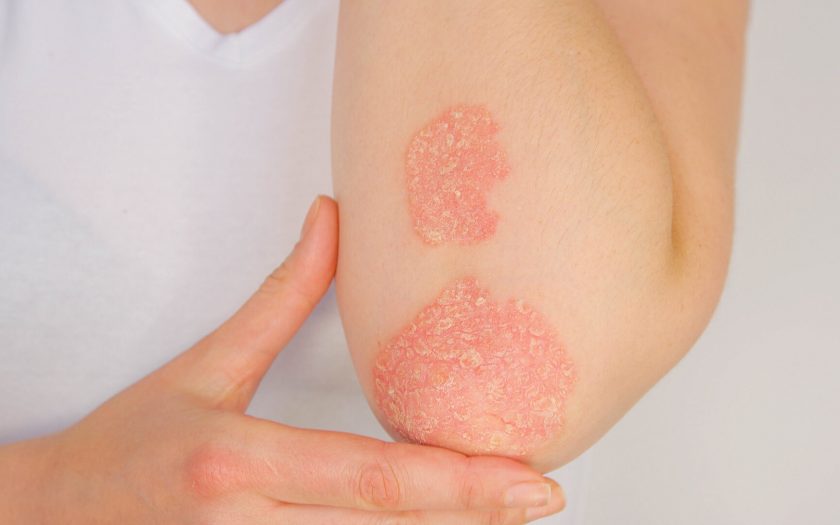Food for psoriasis should contain all the necessary nutrients. It is important to control the amount of food consumed and reduce the amount of high-fat foods.
With psoriasis, it is recommended to follow the following dietary rules:
Eliminate spicy, salty and smoked foods from your diet.
These foods disrupt the absorption process in the gastrointestinal tract and can lead to exacerbation of the disease.
Limit the consumption of pickled, fried and fatty foods, coffee, chocolate, sweets and flour products.
Reduce the consumption of perishable and semi-finished products (pate, meat, etc.).
Limit the consumption of pork and lamb, which contain difficult to digest fats.
Eat more dairy foods with the addition of the required amount of complete proteins and fats.
Lactic acid helps increase the number of beneficial bacteria that protect the intestinal wall from infections. Thus, fermented milk products are recommended for the normalization of the intestinal microflora in psoriasis.
Include more plant foods, raw vegetables and fruits in your diet.
They contain a large number of vital vitamins. Deficiency of one of the vitamins can lead to serious diseases. Vitamins are organic compounds needed to maintain normal metabolism. They cannot be synthesized by the human body in the required quantities and must come with food. Vegetables are one of the main sources of vitamins for the body.
Eat more carrots.
This vegetable is rich in calcium, iron, phosphorus and iodine. It also contains many vitamins, such as B1, PP, B9 and carotene – provitamin A. This vitamin helps to improve the condition of the skin and provides keratogenesis in the epidermis.
Add to the diet green salad, which contains salts of iron and iodine, carotene, vitamin C, E, B1, etc.
Eating lettuce can improve metabolism and stimulate the intestines.
Eat dill, parsley, scallion.
They are all rich in useful mineral salts, vitamins and trace elements. Dill has antispasmodic and tonic effect on the intestines. It improves digestion and has a diuretic effect. Dill is needed for psoriasis, especially if there are symptoms of asthenia of the nervous system or decreased hemoglobin.
Eat more fruits and berries.
The most useful are rose hips, sea buckthorn, black currants, raspberries and blueberries.
In addition to vegetables, you need to eat a variety of cereals.
The most useful of them are buckwheat, oats and wheat.
Drink plenty of water.
Water cleanses the body both externally and internally, improves well-being and rejuvenates the body at the cellular level. Due to dehydration, the skin becomes dry, loses its elasticity, and the treatment of psoriasis becomes less effective. Water saturates our cells from the inside, moisturizes the skin and prevents its rapid aging.
Healthy eating and treatment with effective drugs (such as Betnovate or Dermol) can significantly improve your condition!

